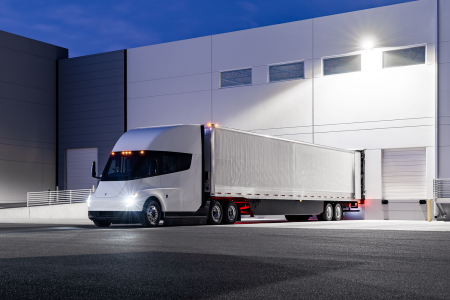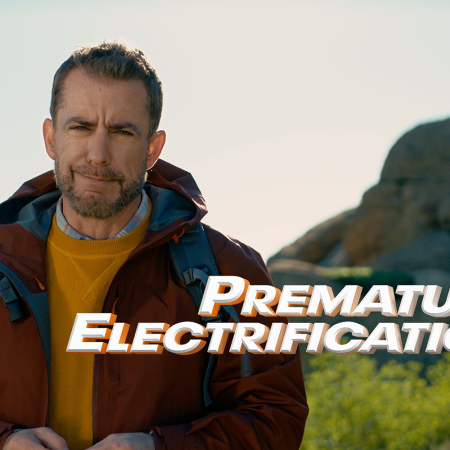If you’re worried about climate change, you might be wondering what you can do to help on an individual level. Eating less meat is a good start, some say. Others suggest riding a bike or taking public transportation to work instead of a car. Maybe instead of throwing food scraps away in the trash, where they’ll be trucked to a landfill and contribute to greenhouse gas emissions, you could start composting at home?
If you ask the billionaires who are supposedly leading the charge on climate change action, they have a different recommendation entirely: focus on large-scale solutions, because individual action is complete and utter nonsense. That’s not a direct quote, mind you, but that’s the message one-percenters like Elon Musk and Bill Gates are communicating to the public by continuing to romp around the globe in private jets despite their huge climate cost.
One day after Tesla’s 2023 investor presentation where Musk highlighted the seriousness of climate change, Bloomberg published an analysis of the CEO’s private jet usage; in 2022, it traveled a distance equal to 12.4 times around the Earth, with a carbon footprint equaling 140 times that of the average American. As for Gates, the Microsoft co-founder made a case to the BBC earlier this year that he’s not a hypocrite for flying in a private jet because he buys the “gold standard” of carbon offsets and spends “billions” on “climate innovation.”
The Bill Gates Argument Against the Tesla Semi Still Stands…For Now
Tesla delivered its first long-haul trucks. Now the real test begins.It’s easy for these obscenely wealthy globetrotters to downplay their private jet use. With aviation contributing 2.4% of global CO2 emissions (per a 2018 estimate), even if we grounded all planes today, there would still be the other 97.6% of emissions to contend with. But of course no one believes simply taking away their jets will solve the climate crisis. If we skip the pedantic arguments and look at the larger picture, Musk and Gates are essentially telling the world: climate change is real, it’s an enormous problem, but you don’t have to change anything about your lifestyle. After all, these guys are supposedly two of the brightest minds in the world, but they can’t possibly figure out how to live without their carbon-spewing jets. So why should you, a normal American, upend your routine to take a bus to work if you can afford a car?
This sentiment was echoed in Tesla’s investor presentation on March 1, when Musk, while unveiling the company’s so-called “Master Plan 3,” said, “There is a clear path to a fully sustainable Earth with abundance.” According to him, it’s possible to create “a sustainable energy Earth” that doesn’t “require us to be austere.”
I dearly hope he’s right. But here’s the thing, even if there is a scenario where we can curb the climate crisis while still living with all the modern comforts and conveniences Americans have come to expect in life, our lives will still be altered drastically. In Musk’s vision, we’ll all be driving electric vehicles, among other changes. In Gates’ estimation, we need to “revolutionize the entire physical economy — how we make things, move around, produce electricity, grow food, and stay warm and cool.” This means large-scale changes for government and industry, but also many changes on an individual level for people around the world. You can’t have one without the other.
And yet, billionaires like Musk and Gates are living in a fantasy of do as I say, not as I do. Will taking away their private jets solve the problem of climate change? No. But would the act of them leading by example help a world that’s resistant to change accept the new realities that are coming down the pipeline in what we can only hope is a net-zero world? Undoubtedly.
If regular people are looking at a future of electric vehicles, reconfigured diets and windmills in their backyards, then self-professed climate leaders should be able to give up their polluting jets.
Thanks for reading InsideHook. Sign up for our daily newsletter and be in the know.


















